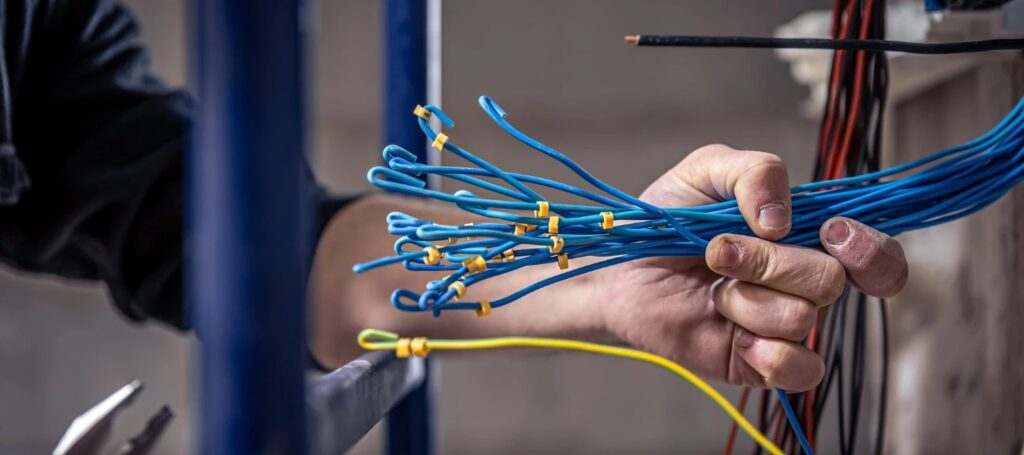The Benefits and Efficiency of Lighting

Circuit breakers and fuses are your first line of defense against electrical overloads and short circuits. We’ll explain how these components work to protect your home from electrical fires and other hazards. While we always recommend leaving electrical work to the professionals, knowing the fundamentals can help you identify potential issues and communicate effectively with your electrician.
Electrical Outlets and Switches
We’ll illustrate these concepts and how they relate to the outlets, switches, and fixtures in your home. In this blog post, we’ll explore the essential components and concepts of residential wiring to help you navigate the world of electrical systems in your home.
- Electrical Outlets and Switches
- Circuit Breakers and Fuses
- Wiring Types
- Grounding and Bonding
- Series and Parallel Wiring
- GFCI and AFCI Outlets
- Common Wiring Problems
We’ll also cover some common wiring problems you might encounter in your home, such as loose outlets, faulty switches, and outdated wiring. Recognizing these issues early can help you address them promptly with the help of a professional electrician.
Common Wiring Problems
By familiarizing yourself with these basic concepts, you’ll be better prepared to maintain a safe and efficient electrical system in your home. Remember that for any electrical work, it’s crucial to consult with a licensed electrician who can ensure the safety and functionality of your electrical systems.
Your safety is our top priority.
Remember that for any electrical work, it’s crucial to consult with a licensed electrician who can ensure the safety and functionality of your electrical systems. If you have any questions or concerns about your residential wiring, feel free to reach out to us at Electrician for expert guidance and assistance.